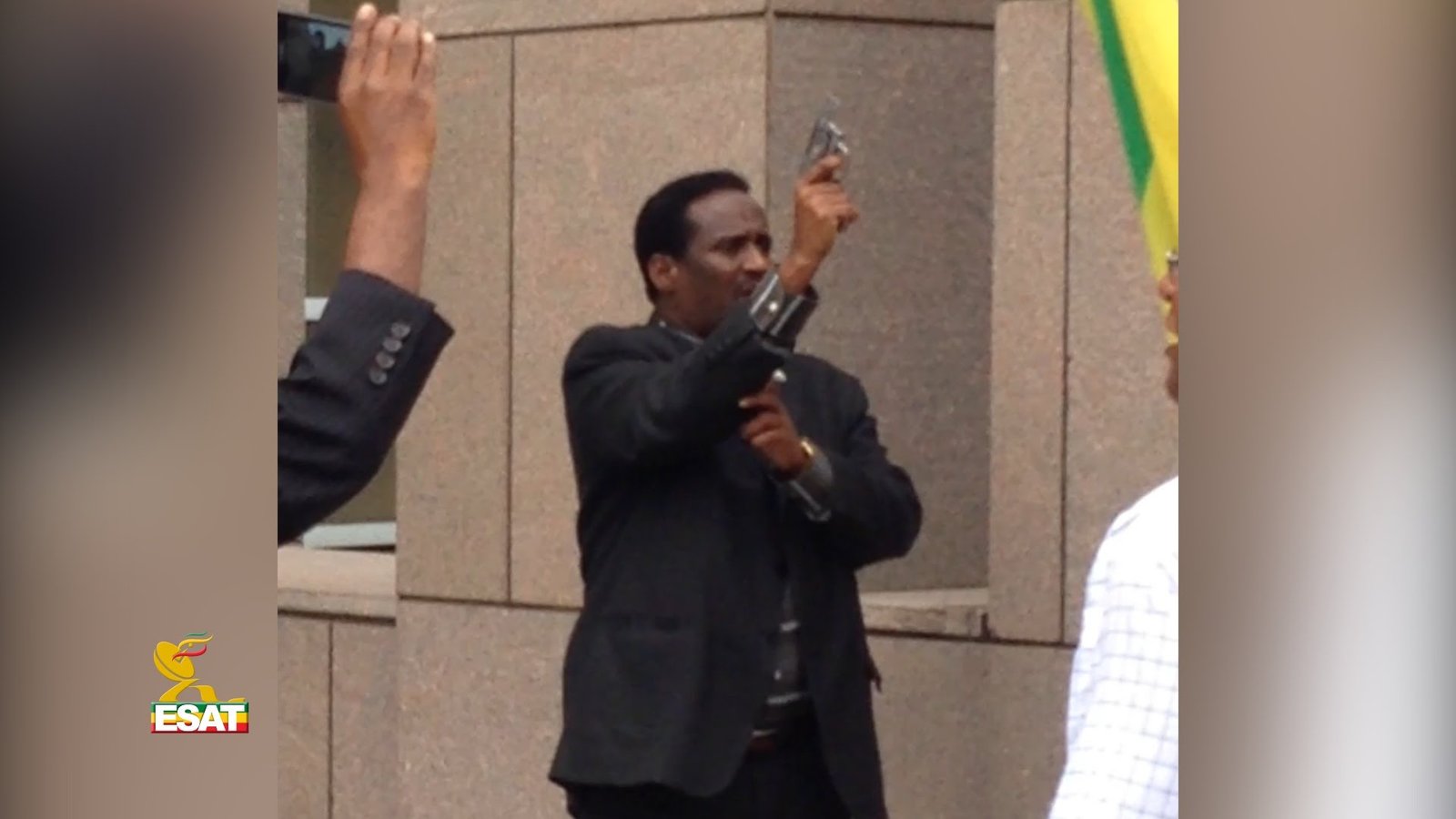US court issues arrest warrant for Ethiopian embassy gunman
By Abebe Gellaw
The United States Attorney’s Office has obtained an arrest warrant in the Superior Court of the District of Columbia for the Ethiopian embassy gunman, Solomon Tadess Gebre Silasse. The security attache, who dramatically shot at peaceful protesters at the Ethiopian embassy, fled to Ethiopia to escape prosecution.
Bill Miller, Public Information Officer at U.S. Attorney’s Office for the District of Columbia, told this reporter that the office obtained the arrest warrant after it filed criminal charges of assault with intent to kill while armed in connection with a shooting incident on September 29 at the Embassy of Ethiopia. “The charge carries a statutory maximum of 30 years,” he said.
Miller further explained that the fugitive would be arrested if he was to return to the United States. Asked why the defendant was not arrested before he fled, Miller pointed out that the former security attaché had diplomatic immunity. “Because this is a pending matter, the U.S. Attorney’s Office has no further comment at this time. Further questions about this matter can be directed to the State Department,” he noted.
The United States expelled the gunman, who was detained and investigated by the Secret Service, after the TPLF-led regime refused to waive his diplomatic immunity to face prosecution for the crime he committed in broad daylight.
State Department spokesperson Jen Psaki said last week that the department had formally requested the Ethiopian government for a waiver of immunity to permit prosecution of the individual. “The request was declined, and the individual involved has now left the country,” she said.
Political Science Professor and defense attorney Alemayehu Gebremariam, aka Al Mariam, explained that as an arrest warrant has already been issued he can be arrested anywhere in the U.S. or U.S. territories. “The warrant will remain in place and will not be recalled until he is arrested and brought to justice or the matter is resolved through other judicial disposition.”
Al Mariam further noted that the defendant’s name would be entered into the National Crime Information Center (NCIC), an electronic clearinghouse of crime data that can be tapped into 24/7 by criminal justice agencies nationwide. “He can run back to Ethiopia, but he will never be able to come and hide in the U.S.,” he said.
Asked if the fugitive can permanently escape from US judicial system, Al Mariam indicated that his freedom of movement would be limited as he could even face extradition. “Mr. Gebre Selassie may feel he has escaped the long arms of U.S. justice, but now that he has left the U.S. he is no longer protected by diplomatic immunity. If he is found in any country that has an extradition agreement with the U.S. he could be extradited for prosecution.”



























